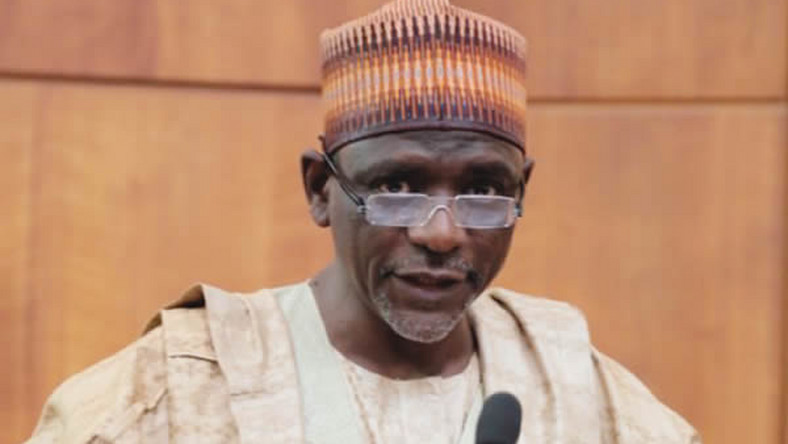On Monday, August 26, 2019, stakeholders in the education sub-sector converged on Kano state for the flagging-off of School-Based Management Committee School-Improvement Programme (SBMC-SIP), a federal government programme aimed at improving the standard of basic education in the country.
The event which took place at Coronation Hall, Government House Kano, was attended by various government top officials from both state and federal government, education administrators, academicians and other stakeholders in the education sub-sector.
Under the programme, the federal government set to improve the condition of 2,505 schools this year in order to improve quality of education at basic level in 2,505 selected communities.
The Minister of Education, Malam Adamu Adamu, who flagged-off the programme, said that the SBMC-SIP was a homegrown initiative aimed at addressing national aspirations and meeting global expectations through the provision of qualitative education free of charge to all children of school age.
He, however, said implementation experiences had shown that the delivery of basic education in the country is being faced with daunting challenges that militate against Nigerian’s drive towards meeting her developmental goals and global expectations.
“Thus, it become imperative within the context of the challenges such as phenomenal inadequacy of teacher quality and sufficiency, insufficient infrastructure, large size of out-of-school children, skyrocketing population growth and inadequate finances that, the full involvement of all and sundry is required to reverse the trend,” he said.
The minister added that federal government was aware that inadequate funding was at the center of the challenges facing not only basic education, but the entire education sector.
Represented by the Permanent Secretary of the ministry, Mr Sunny Echono, Adamu explained that government’s aim was to encourage leaders at various levels to participate in the activities of education.
“We want each leader to adopt a school in his domain and improve its standard. This would reduce the security challenges because by the time we slash the number of out-of-school children in our communities, crimes would certainly reduce”
Earlier, the Executive Secretary of the Universal Basic Education Commission (UBEC), Dr Hamid Bobboyi said the vision of the commission in the SBMC-SIP was to put a strategy for school development whereby community-initiated self-help projects would be implemented by the SBMCs.
Bobboyi said apart from the SBMC-SIP, the commission had instituted many other programmes in order to retool the basic education processes, saying “just last month, the commission signed a Memorandum of Understanding (MoU) with Commonwealth of Learning (CoL) for the implementation of open Schooling programme with target on Out-of-School children.
“Any child that is left behind in education, is a lost to the nation. It is important to note that by solving the problem of education of our children, we have solved 1/3 of the problem of the nation.”
The executive secretary, who identified lack of quality teachers as one of the major problems affecting education in public schools, said “quality of education defends on the quality of teachers and until Nigerian improve the quality of teachers being sent to public schools, the nation would never get it right on the issue of fallen standard of education at basic level.”
On his part, Kano state Governor, Dr Abdullahi Umar Ganduje said the programme would give public schools a new life through provision of conducive learning atmosphere, urging the school administrators to be steadfast and committed to the programme.
Governor Ganduje, who assured his support to the programme, said his administration had since initiated education promotion committees with a view to promoting basic education in the state.
He said, “The SBMC-SIP programme would surely addresses challenges associated with out-of-school children, school enrolment and quality of teachers as well as promote partnership among stakeholders in the education sector”
Dr Bala Muhammad, a lecturer in the Department of Mass Communication, Bayero University Kano, described the programme as an innovative make-up for improving quality of basic education in public schools.
“This programme is a TETFUND of primary school. Government has been budgeting money for the improvement of education at basic level but such money has not been utilized. With this programme, we are looking forward to seeing difference in public schools,” he said.
Dr Muhammad also suggested that state governments should make it mandatory to all political appointees in their respective states contribute in manning the affairs of basic education, noting that “each political appointee should take care of at least one public school in his constituency. The appointee must ensure that that school gets all it needs to be a conducive place for learning.”
He further suggested that each should embark on a special tour to nooks and crannies of his territories to enlighten their people about the programme, adding that they should ensure that prompt enrolment of school-age children and restore the lost glory of public schools in their respective domains.
“Today, no much hope exists in public schools. We want all stakeholders to come together and restore this hope in our public schools. With this programme on ground, we can together improve the quality of education in our public schools,” he concluded.
The Emir of Karaye, Alhaji Ibrahim Abubakar ll, described education as the bedrock of sustainable development of a nation, assuring that the enormous challenges bedeviling education sector could be addressed if SBMC-SIP programme got the desired support from the stakeholders concerned.
Emir Abubakar assured government of his emirate support to the programme, while urging other stakeholders to contribute their quota towards making the programme a success.

 Join Daily Trust WhatsApp Community For Quick Access To News and Happenings Around You.
Join Daily Trust WhatsApp Community For Quick Access To News and Happenings Around You.


